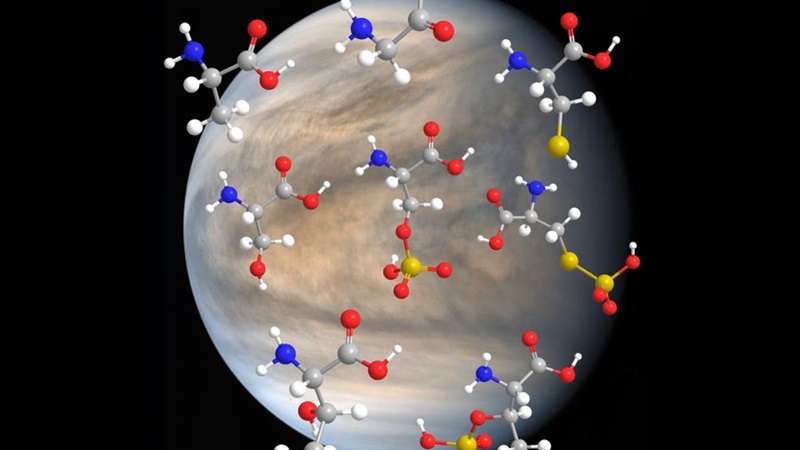
In a recent experiment, scientists discovered that if Venus, with its toxic clouds, were to host living organisms, they wouldn’t lack amino acids, crucial for life’s foundation.
Venus, Earth’s “twin planet,” boasts scorching temperatures soaring into the hundreds of degrees and is ensconced in clouds of corrosive sulfuric acid. This noxious substance, a colorless, cancer-causing liquid, can corrode teeth, irritate eyes, throats, and noses, and dissolve metals.
While Venus isn’t typically viewed as a hospitable environment for life, researchers propose that if life were to arise in Venus’s hellish milieu, it might thrive amidst its toxic clouds. These clouds, with cooler temperatures compared to the planet’s surface, could support certain extremophile life forms.
In a novel experiment conducted by scientists at the Massachusetts Institute of Technology (MIT), it was observed that 19 amino acids persisted for at least a month in a sulfuric acid solution, akin to Venusian cloud content, when mixed with water.
This experiment demonstrated that sulfuric acid isn’t universally antagonistic to the organic chemistry found on Earth. It also suggested that Venus’s clouds might harbor some of these complex molecules.
Astrophysicist and planetary scientist Sara Seager, a co-author of the study, emphasized that life on Venus wouldn’t mirror life on Earth, but the research advances the notion that Venus’s clouds could nurture the complex chemicals essential for life.
Co-author Janusz Petkowski, from MIT’s Department of Earth, Atmospheric and Planetary Sciences (EAPS), remarked on the misconception that concentrated sulfuric acid is universally destructive to organic compounds, noting that this perception is not necessarily accurate.
The experiment concluded after four weeks, with no further signs of activity. Maxwell Seager, an undergraduate student at Worcester Polytechnic Institute in Massachusetts, who led the study, clarified that demonstrating the stability of this molecular backbone in sulfuric acid doesn’t confirm life on Venus, but rather underscores the potential for it.

Post Your Comments